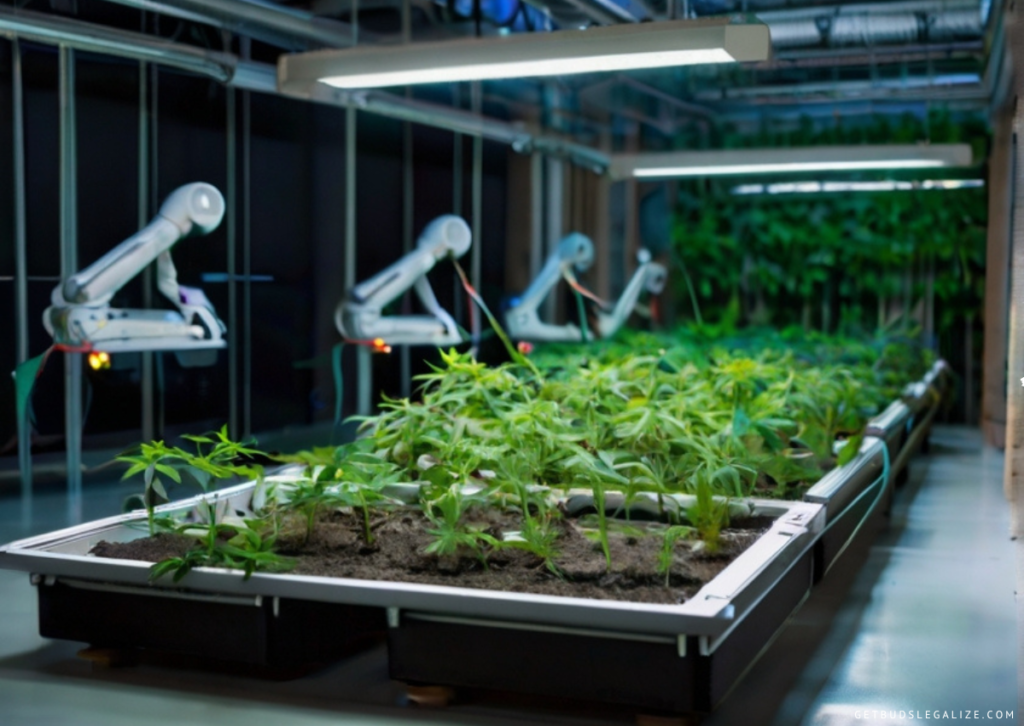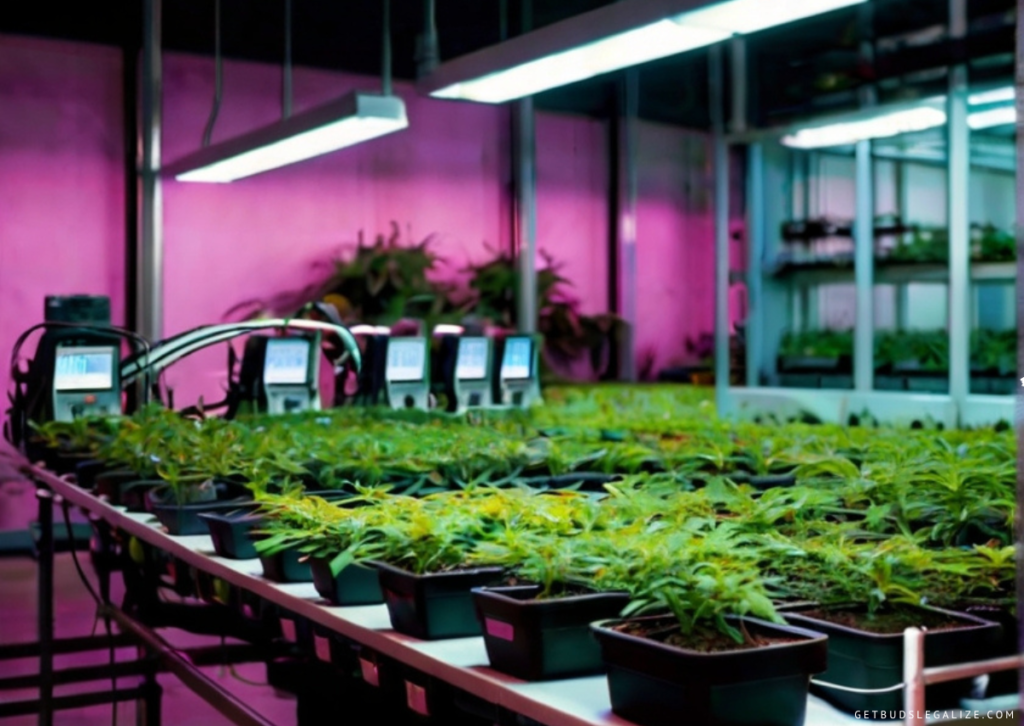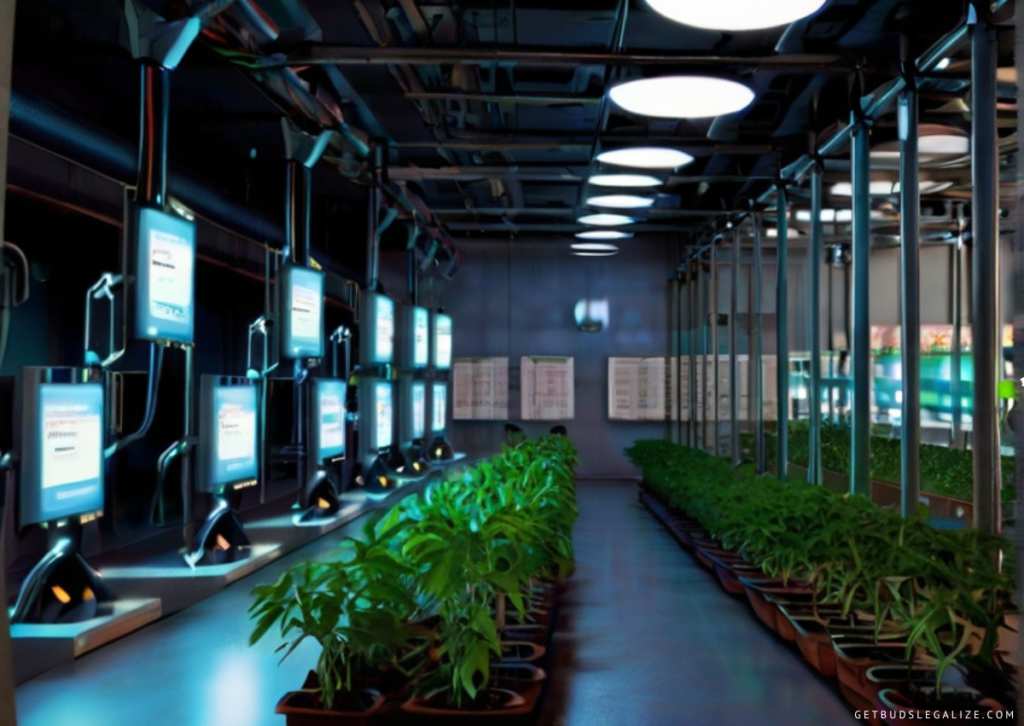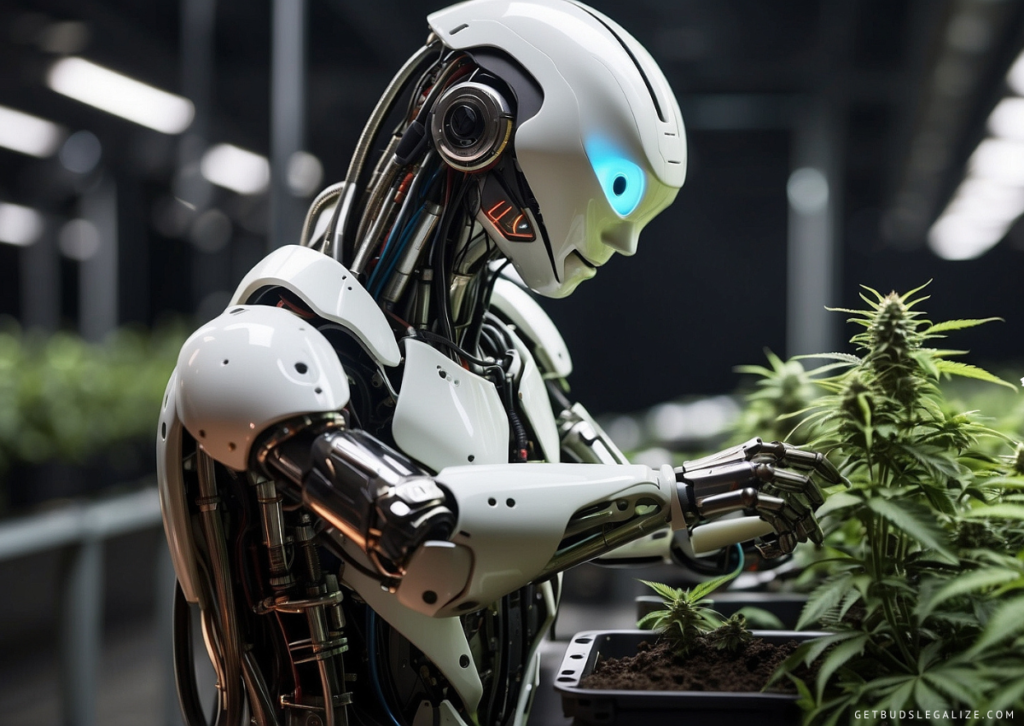How Artificial Intelligence Is Transforming The Cannabis Industry



The Future of Cannabis Cultivation With Artificial Intelligence
Over the last century, the cannabis industry has undergone numerous advancements in the agricultural, technological, and energy sectors. While we often associate artificial intelligence (AI) with a recent addition to this field, the truth is that innovation has been a constant for decades. Substantial advances in artificial intelligence and robotics technology over the past 25 years have led to significant improvements, particularly benefiting the cannabis industry.
As one of the fastest-growing sectors globally, the cannabis industry is experiencing widespread legalization and decriminalization in various countries and states. This dynamic environment is constantly evolving, with increasing adoption and reliance on artificial intelligence (AI) technologies.
In this in-depth exploration, we will delve into the current and future impacts of artificial intelligence on the cannabis industry, examining the multiple ways in which these technologies contribute to its growth and development.
What Is Artificial Intelligence In Simple Words?
At its core, Artificial Intelligence refers to the simulation of human intelligence in machines programmed to think, learn, and adapt like humans. This field of computer science encompasses a wide range of approaches, from rule-based systems to complex neural networks.


Uses And Applications Of AI

Artificial Intelligence In Cultivation And Agriculture
Growing cannabis is a nuanced undertaking, requiring meticulous oversight of various environmental variables. Artificial intelligence (AI) is leading a revolution in this industry, manifesting itself in several transformative ways.
1. Precision agriculture: AI-based systems exploit data collected by a series of sensors, cameras, and IoT (Internet of Things) devices installed within cultivation facilities. These systems meticulously monitor crucial factors such as temperature, humidity, light intensity, and soil conditions. Through continuous analysis of this data, artificial intelligence algorithms make adjustments in real-time, creating optimal growing conditions for cannabis plants. This precision translates into higher yields and superior product quality.
2. Detection of diseases and pests: Combating diseases and pests is a perennial challenge in cannabis cultivation. AI-based image recognition systems scan plants for nascent signs of disease or pest incursions, allowing growers to quickly implement preventative measures, preventing crop damage. These systems possess the ability to rapidly sift through myriad images, greatly improving detection accuracy.
3. Nutrient management: artificial intelligence also lends its expertise to optimize nutrient management by examining data from soil sensors. By providing recommendations for nutrient changes based on real-time data, AI ensures that cannabis plants receive tailored nutrients, commensurate with their growth stage.
AI Technology For Quality CheckMaintaining product quality and consistency is essential in the cannabis industry, particularly when it comes to medical cannabis products. Artificial intelligence (AI) plays a vital role in quality assurance in various ways:
1. Chemical Analysis: AI-powered equipment can quickly and accurately analyze cannabis products for labeling and regulatory compliance, including THC and CBD concentrations. This analysis is essential for product labeling and regulatory compliance. Automated test equipment powered by AI performs these analyses quickly and with remarkable accuracy.
2. Contaminant Detection: AI systems skillfully detect contaminants, such as pesticides, heavy metals, and mold, within cannabis products. This ensures the safety of consumer products by aligning with regulatory parameters.



AI For Inventory Management
Simplified inventory management is a cornerstone for cannabis companies to meet customer needs and reduce expenses. Artificial intelligence (AI) offers indispensable help in inventory management through:
1. Demand Forecasting: AI algorithms meticulously examine historical sales data, market dynamics, and various factors to provide accurate predictions of future demand. Such information allows companies to optimize inventory levels, mitigating the dangers of excess inventory or stock shortages.
2. Supply chain optimization: AI drives improvements within the supply chain by optimizing delivery routes and logistics strategy. This ensures prompt delivery of products to stores and customers while reducing transportation costs.
AI Works To Improve Customer ExperienceArtificial Intelligence (AI) plays a relevant role in enriching the customer experience in the cannabis industry through:
1. Customer Analytics: AI can analyze customer data to extract valuable insights into consumer behavior and preferences. This information can guide marketing strategies, product development, and pricing decisions.
2. Personalized Recommendations: By leveraging AI-powered recommendations, dispensaries, and online platforms can provide customers with personalized product suggestions. These recommendations are personalized based on user reviews, preferences, and previous purchases, creating a more enjoyable and personalized shopping experience.
AI For Research And DevelopmentArtificial intelligence has the ability to accelerate research and development efforts in the cannabis industry through:
1. Strain development: Breeders use artificial intelligence to cultivate fresh cannabis strains with distinct traits. For example, AI helps create strains that boast high levels of CBD, distinctive terpene profiles, or customized aromas and flavors.
2. Drug discovery: Researchers leverage artificial intelligence to sift through large data sets regarding cannabis compounds and their physiological impacts. This exploration could reveal new drugs and therapeutic implementations of cannabis.



Regulatory Compliance
The cannabis industry operates within strict regulatory frameworks in numerous regions. Artificial intelligence proves instrumental in helping companies navigate these regulations more efficiently through:
1. Compliance Management: AI-based systems excel at monitoring and managing compliance with various regulatory prerequisites. This includes overseeing product labeling, enforcing potency limits, and meeting reporting requirements. Automating these processes not only mitigates the risk of non-compliance but also minimizes associated penalties.
2. Reports and documentation: AI simplifies the generation of reports and regulatory documentation, presenting a solution that saves companies time and resources. This has particular significance in tightly regulated markets, where precise reporting is integral to maintaining licenses and permits.
AI For SafetySafety is a key concern for cannabis companies, given the intrinsic value of their products and the rigorous regulatory standards they must meet. Artificial intelligence technologies play a vital role in strengthening security measures through:
1. Video surveillance: AI tools can examine video feeds from security cameras to identify anomalous behavior, such as unauthorized entry or theft. This proactive surveillance approach serves to avoid accidents and protect invaluable assets.
2. Facial recognition and access control: AI-based facial recognition systems are instrumental in regulating access to cultivation facilities and dispensaries, allowing entry only to authorized personnel. This strengthens security protocols and safeguards against unauthorized access.
Ai For Compliance With Sustainability ObjectivesSustainability emerges as a growing concern in the cannabis industry, given its substantial demand for energy and water resources. Artificial intelligence emerges as a fundamental tool for mitigating environmental impact through:
1. Water management: Artificial intelligence extends its usefulness to facilitate judicious water management, ensuring responsible use of water resources in cannabis cultivation facilities and reducing waste.
2. Energy efficiency: By leveraging artificial intelligence, companies can optimize energy consumption within cultivation facilities by supervising and regulating lighting, heating, and cooling systems. This optimization reduces energy consumption, reduces operating expenses, and aligns with sustainability goals.



Challenges And Ethical Consideration For The Artificial Intelligence
Artificial intelligence presents challenges and ethical considerations for the cannabis industry, including:
1. Biases and fairness: Algorithms can inherit biases inherent in the training data. Ensuring fairness in AI decisions, particularly in areas such as customer recommendations and strain development, is critical to preventing the perpetuation of bias.
2. Data Privacy: Collecting data for AI analysis requires meticulous management to safeguard consumer and patient privacy. Compliance with regulations governing the collection and retention of personal data is critical to addressing these concerns.
3. Integration and Adoption: Implementing AI technologies can pose challenges, particularly for small businesses with limited resources. Ensuring the accessibility and affordability of these tools across the industry is critical.
4. Regulatory Compliance: Cannabis companies must navigate complex and ever-changing regulatory landscapes. Implementing AI systems to facilitate compliance requires special attention to ensure alignment with these regulations.
Final ConsiderationsThe cannabis industry is on the brink of a technological revolution, with artificial intelligence poised to revolutionize various aspects of cultivation, production, distribution, and customer experience.
As the industry grows and matures, AI integration is likely to become more widespread and indispensable to thrive in a competitive environment.
However, stakeholders must also address the ethical and regulatory dimensions of adopting AI in cannabis. By prudently managing these challenges, the industry can harness the full potential of artificial intelligence to deliver high-quality products, improve operational effectiveness, and contribute to a sustainable future.
FAQS about Artificial Intelligence AI
What is Artificial Intelligence and how does it impact everyday life?
https://getbudslegalize.com/artificial-intelligence-cannabis-ai/
Commenti
Posta un commento